
2018-2019学年高中北师大版英语选修八同步检测:Unit 23 Conflict23-4a(含答案)
11页1、课时语法精讲 KESHIYUFAJINGJIANG语法预备役用括号里动词的正确形式完成下面的句子1Why _ (have) you _ (be) in touch?答案:havent;been2You _ (have) my email for ages!答案:have had3At least by the time I get back I _ (read) that awfully boring book that my history teacher has made me read over the holidays.答案:will have read4If I _ (realise) it was that dangerous I _ never _ (stand) so close!答案:had realised;would;have stood5I suppose they _ (know) me since I was a baby.答案:must have known6I _ (be) out helping my grandfather with his fenc
2、e.答案:should have been语法讲座表达完成的动词形式1现在完成时(1)现在完成时由“have/has过去分词”构成,主要有两个含义:表示动作发生在过去,但对现在有影响,有时无时间状语,有时和一些所指时间不具体的时间状语连用,如:just, yet, already, before, recently, lately等。表示从过去某一时间开始一直延续到现在并还可能继续延续下去的动作,用于延续性动词,且句中常带有表示一段时间的时间状语,如:since, for等。(2)现在完成时和一般过去时都能表示过去发生过的动作,但现在完成时表示过去的动作对现在的影响,并且表示这一动作已完成或还可能继续下去;一般过去时与现在的情况没有联系,仅表示过去的动作,且这一动作到说话时已终止。因此现在完成时不能与明确地表示过去时间的状语如when I was five years old, in 1949, yesterday, last week等连用,并且用when或where对这些时间或地点状语提问时,一般只用一般过去时。(3)在“It is the first/second.time th
3、at.”或在“It/This/That is the 最高级名词that.”结构中,that从句中的动词常用现在完成时;由since引导的从句一般用过去时,主句用现在完成时。2过去完成时(1)过去完成时适用的场合过去完成时表示在过去某一时间或动作以前已经完成了的动作。这个过去的时间常用by,before等构成的介词短语或一个时间状语表示出来,也可以暗含在上下文中。如:I had finished my homework before supper.我在晚饭前就把作业做完了。The play had already started when we got to the theatre.我们到剧场时戏已经开始了。By the end of June they had treated over 10,000 patients.到六月底他们已经治疗了一万多个病人。过去完成时还可表示过去某一时刻之前发生的动作或状态持续到过去某个时间。如:He had served in the army for ten years before he retired last year.他在部队干了十年,去年退
4、伍了。He told me that he had known her since he was a child.他告诉我他从小就认识她。He had learned English for eight years before he went to England for further study.他在去英国深造前,已学了八年英语。在一段情景连贯的文字中,先发生的事放在后面叙述时,要用过去完成时。如:Tom flew home, but his father had already died.汤姆乘飞机回家,但他的父亲却已经去世了。过去完成时也用于hadjust/barely/scarcely/hardlydone.when.,no sooner.than., It was the first time that等一些固定句型中。如:He had no sooner left the room than they began to talk about him.他刚离开房间,他们就议论起他来。We had hardly begun when we were told to stop
《2018-2019学年高中北师大版英语选修八同步检测:Unit 23 Conflict23-4a(含答案)》由会员【****分享,可在线阅读,更多相关《2018-2019学年高中北师大版英语选修八同步检测:Unit 23 Conflict23-4a(含答案)》请在金锄头文库上搜索。

2024苏科版数学七年级下册--期中素养综合测试【含答案】

广东省湛江市遂溪县2023年小升初语文试卷【含答案】
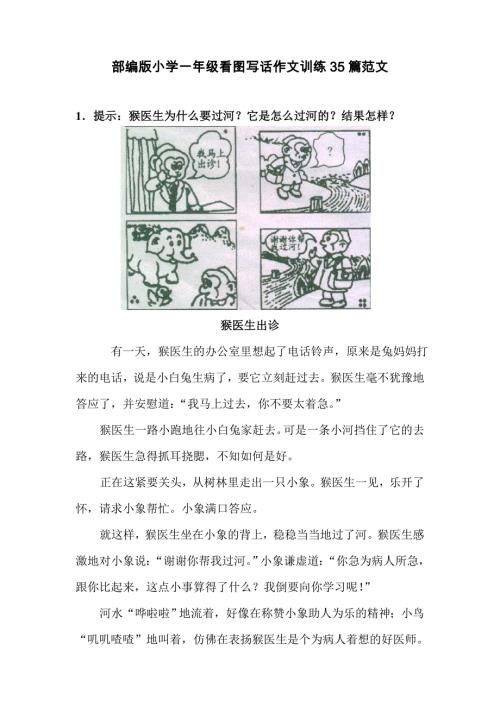
部编版小学一年级看图写话作文训练35篇范文
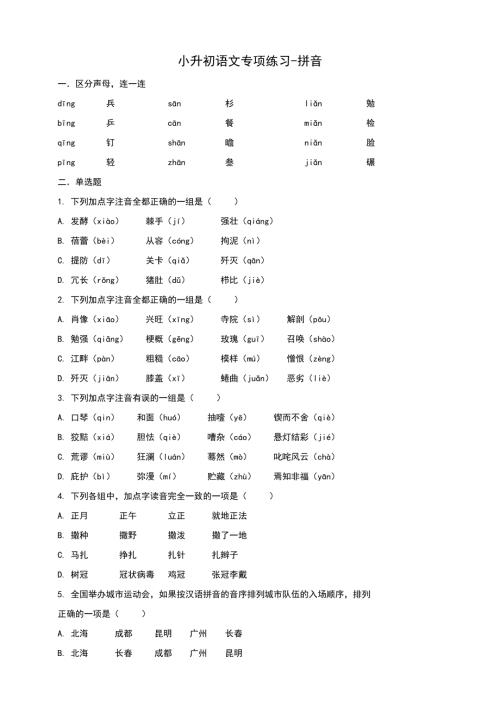
小升初语文专项练习试卷-拼音 (含答案)

河北省唐山市迁安市2023年小升初语文试卷【含答案】

2024年六年级下学期小升初语文精选易错题集(三)【含答案】
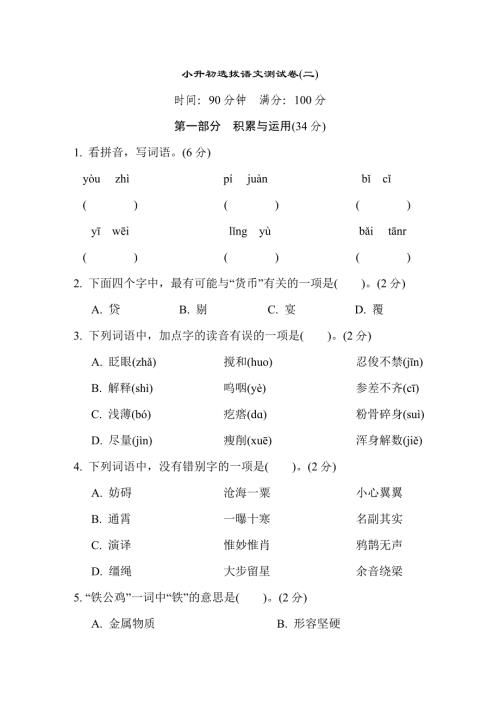
小升初选拔语文测试卷(二)含答案

二年级上册看图写话试题

2024年六年级下学期小升初数学 真题集萃前沿卷B【含答案】

苏教版五年级数学下册一 简易方程 列方程解决简单的实际问题例7 教学设计
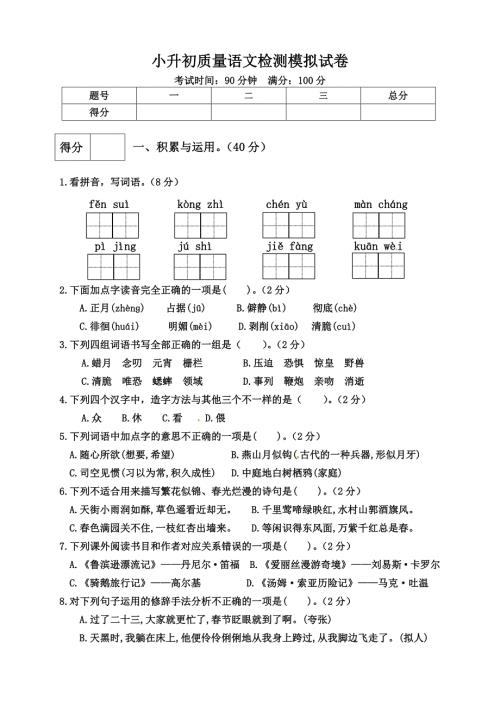
统编版小升初质量语文检测模拟试卷 【含答案】
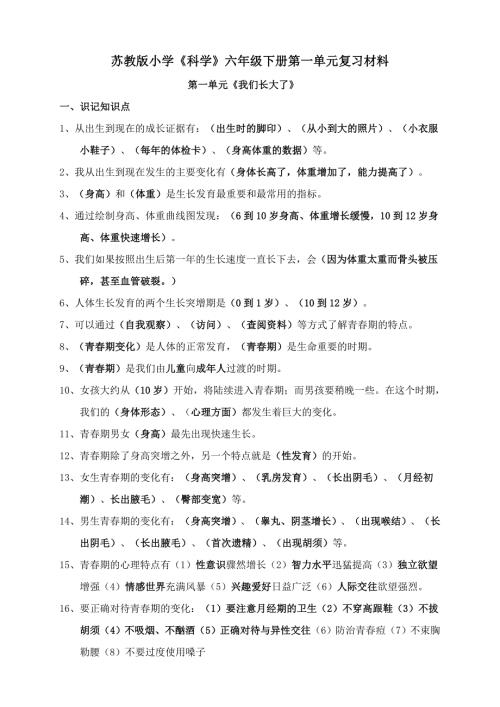
苏教版(2001)科学 六年级下册 第一单元我们长大了 复习材料
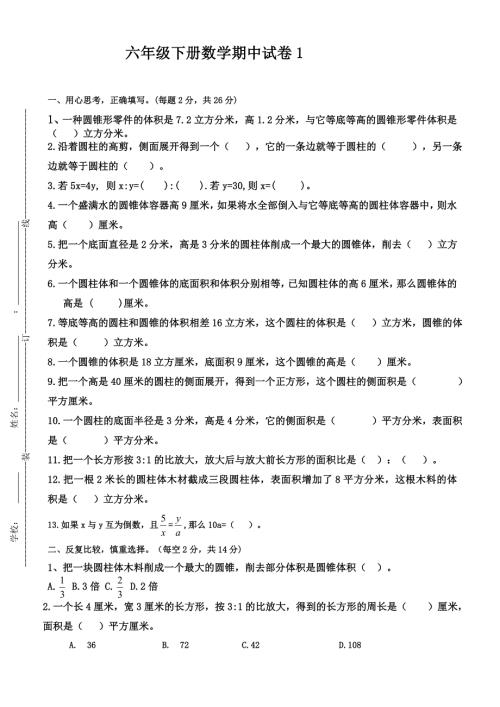
六年级数学下册期中试卷共十套
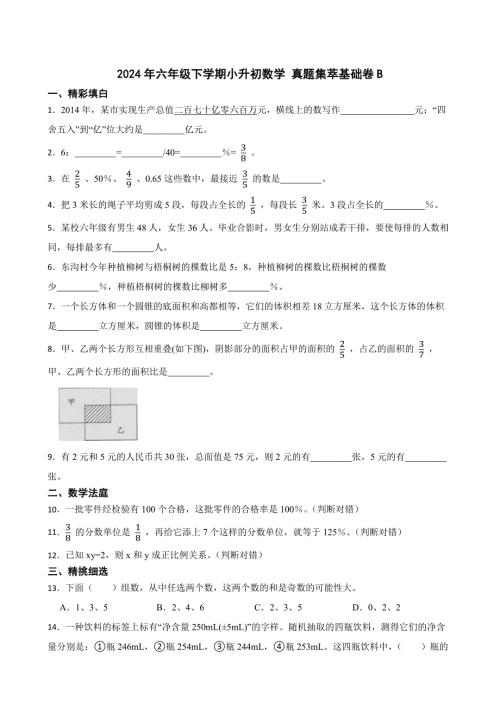
2024年六年级下学期小升初数学 真题集萃基础卷B【含答案】
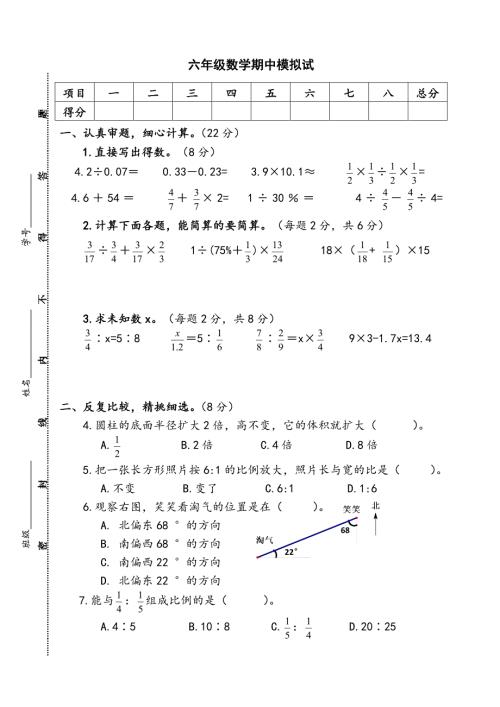
2022春苏教版六年级数学下册期中模拟试卷【含答案】

苏教版六年级数学下册期中检测题【含答案】

连云港市 苏教版数学六年级下册期中模拟测试卷【含答案】
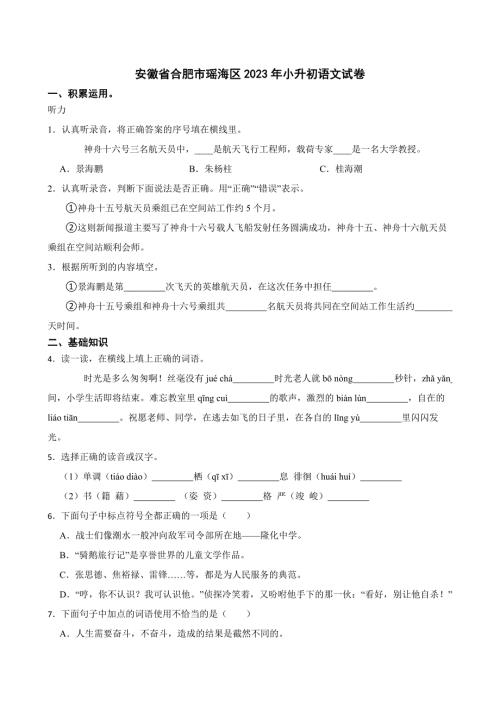
安徽省合肥市瑶海区2023年小升初语文试卷【含答案】

浙江省温州市鹿城区2023年小升初语文试卷【含答案】
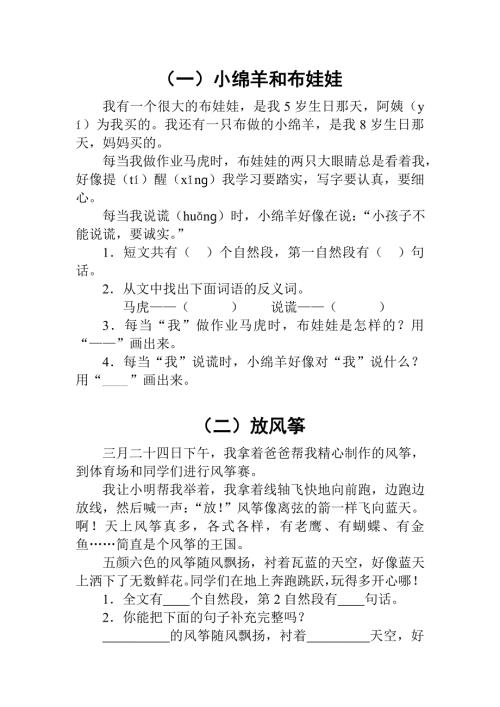
二年级部编版语文下册阅读练习看图写话
 2023-2024学年江苏省南京市玄武区八年级(下)期中数学试卷(含解析)
2023-2024学年江苏省南京市玄武区八年级(下)期中数学试卷(含解析)
2024-05-06 23页
 【高中、中学通用】班主任工作手册
【高中、中学通用】班主任工作手册
2024-05-05 77页
 2023-2024学年江苏省南京市六校联合体高一(下)期中物理试卷(含解析)
2023-2024学年江苏省南京市六校联合体高一(下)期中物理试卷(含解析)
2024-04-28 15页
 四种方法计算根号107的近似值
四种方法计算根号107的近似值
2024-04-23 3页
 浙江省丽水市丽水发展共同体联盟2023-2024学年高一下学期4月月考地理试题 Word版含解析
浙江省丽水市丽水发展共同体联盟2023-2024学年高一下学期4月月考地理试题 Word版含解析
2024-04-22 18页
 浙江省培优联盟2023-2024学年高一下学期4月联考数学试题 Word版含解析
浙江省培优联盟2023-2024学年高一下学期4月联考数学试题 Word版含解析
2024-04-22 14页
 浙江省培优联盟2023-2024学年高二下学期4月联考地理试题 Word版含解析
浙江省培优联盟2023-2024学年高二下学期4月联考地理试题 Word版含解析
2024-04-22 18页
 浙江省培优联盟2023-2024学年高二下学期4月联考数学试题 Word版含解析
浙江省培优联盟2023-2024学年高二下学期4月联考数学试题 Word版含解析
2024-04-22 15页
 1.2.4.4伽利略对自由落体运动的研究
1.2.4.4伽利略对自由落体运动的研究
2024-02-29 2页
 1.2.3匀变速直线运动的推论
1.2.3匀变速直线运动的推论
2024-02-29 5页

